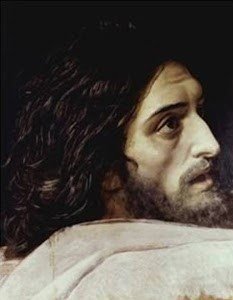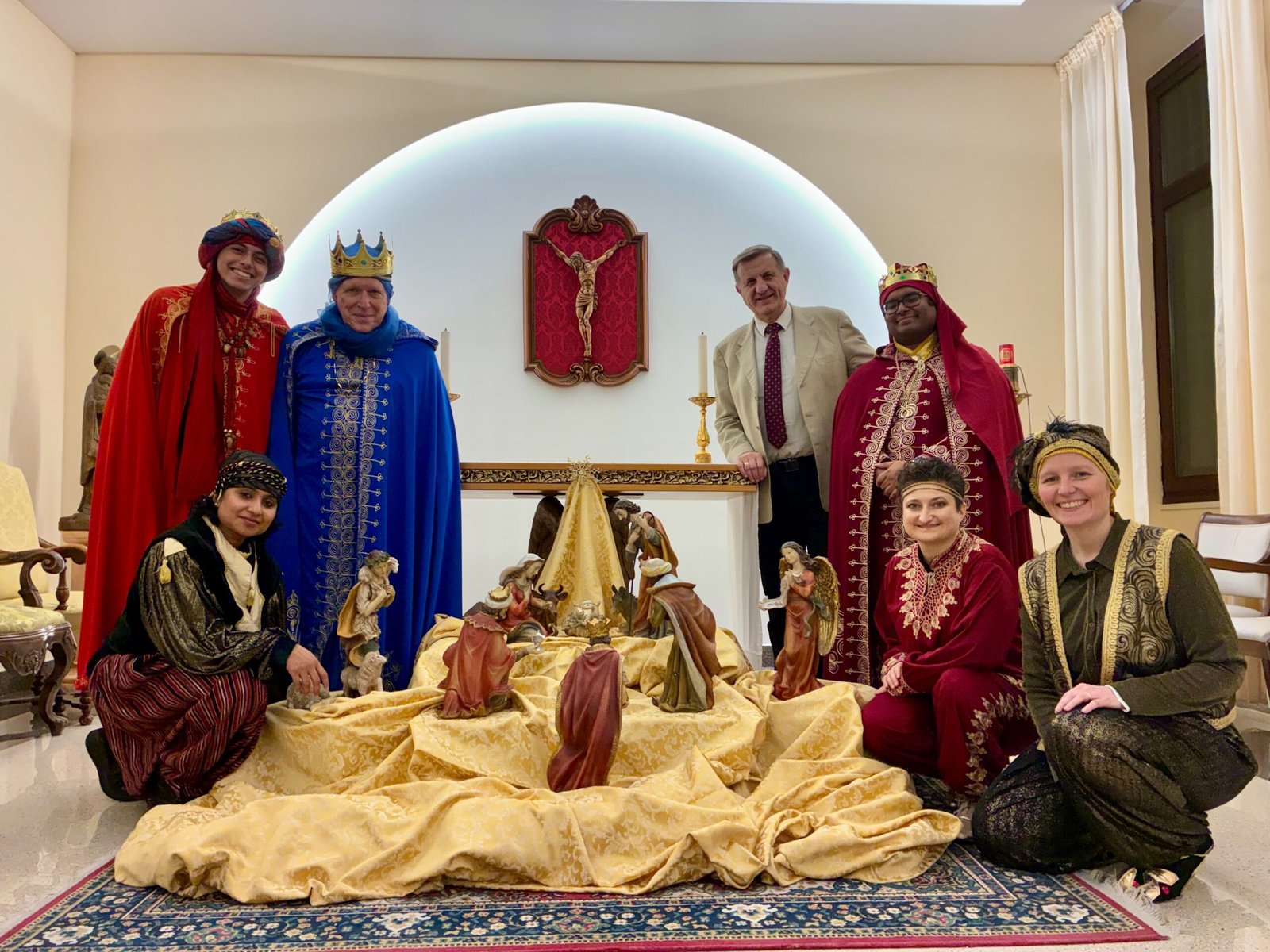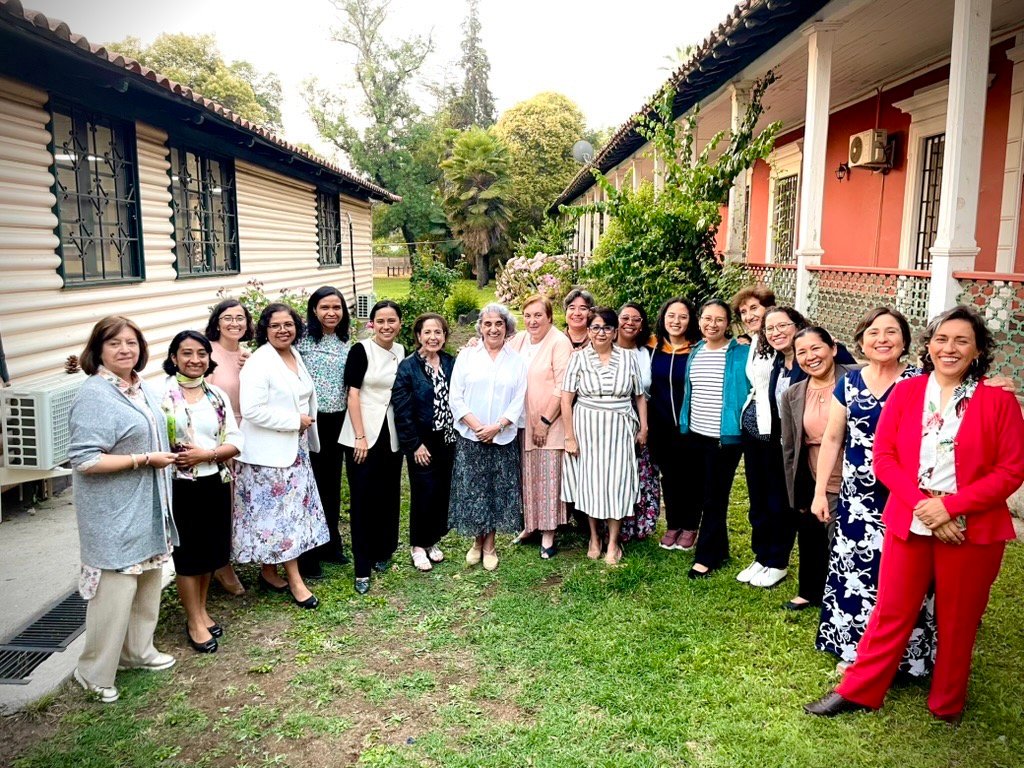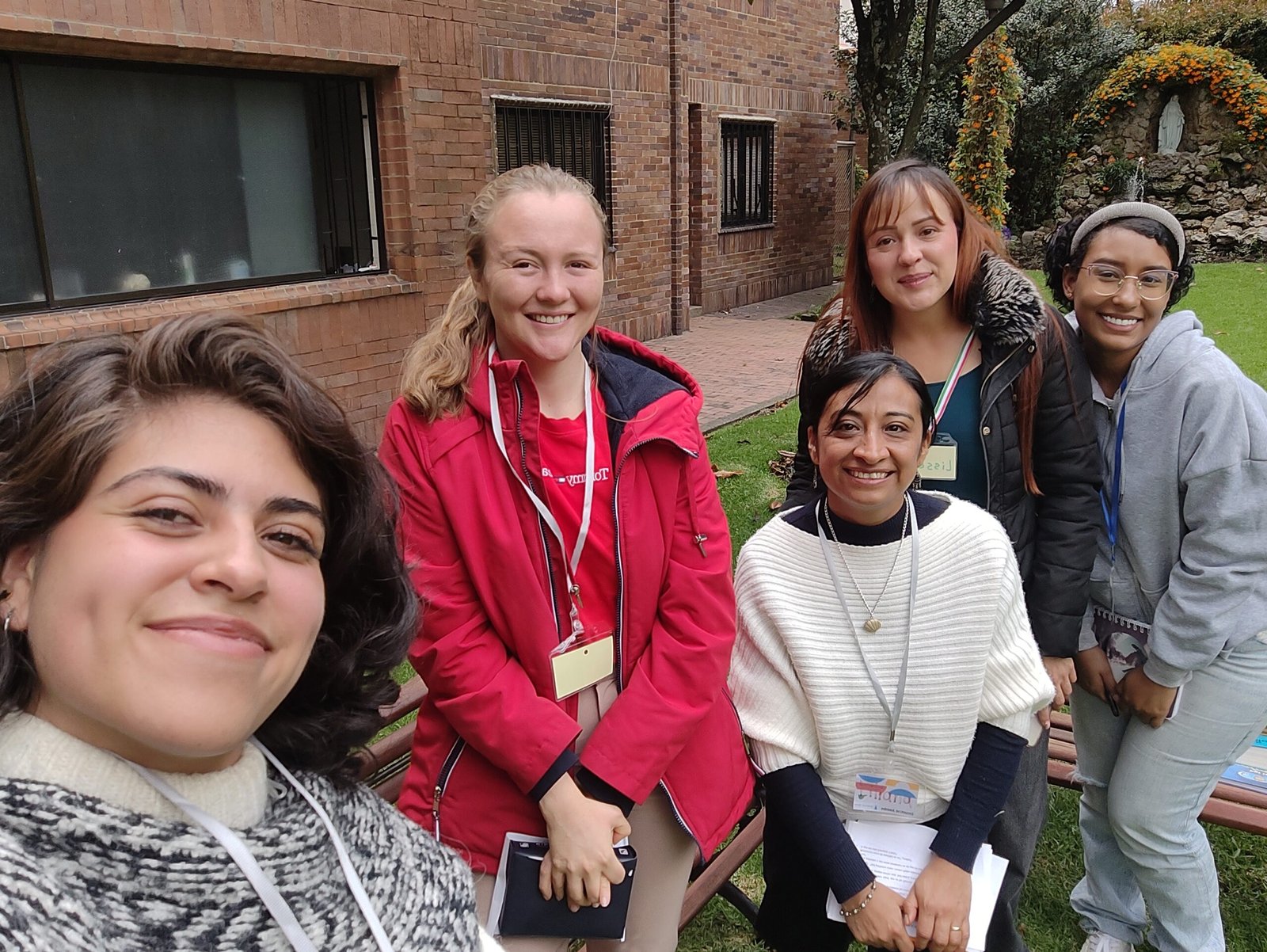
by f. Luis CASASUS, General Superior of the men’s branch of the Idente missionaries.
New York/Paris, December 13, 2020. | Third Sunday of Advent
Book of Isaiah 61: 1-2a.10-11; 1 Thessalonians 5: 16-24; Saint John 1: 6-8.19-28.
All the three readings for this Sunday echo the theme of joy.
The depth of the joy of the moment of the celebration is very much dependent on how much we have prepared ourselves for it. On the other hand, in the very act of the preparation, we are already entering into the joy of the celebration.
I remember a saying that my grandma used to say: The best time on Sunday is Saturday afternoon.
This is one of the reasons why the Church invites us to live Advent as a time of serenity, in order to appreciate in all its greatness, the coming of Christ This is one of the reasons why the Church invites us to live Advent as a time of serenity, to be able to appreciate in all its greatness the arrival of Christ that we celebrate at Christmas.
We all understand that spiritual joy is not the same as the joy of this world, even though they sometimes go together. But it is more fundamental to understand well where the joy that a disciple of Jesus lives comes from.
This famous story is told of St. Francis of Assisi, that he was traveling with his assistant, Br. Leo. It was winter and they both shivered from the cold. Francis called to Leo: Brother, if it were to please God that the friars should give, in all lands, a great example of holiness and edification, write down, and note carefully, that this would not be perfect joy.
A little further on, Francis added: Brother Leo, if the friars were to make the lame to walk, if they should make straight the crooked, chase away demons, give sight to the blind, hearing to the deaf, speech to the dumb, and, what is even a far greater work, if they should raise the dead after four days, write that this would not be perfect joy.
Finally, after several miles Br. Leo wondered much within himself, and then blurted out: I pray you, teach me wherein is perfect joy.
Francis answered Leo: If, when we shall arrive at our destination, all drenched with rain and trembling with cold, all covered with mud and exhausted from hunger; if, when we knock at the convent gate, the porter should come angrily and ask us who we are; if, after we have told him, ‘We are two of the brethren,’ he should answer angrily, ‘What you say is a lie. You are two impostors going about deceiving the world, and taking alms from the poor; get out!’
If then he refuses to open to us, and leave us outside, exposed to the snow and rain, suffering from cold and hunger until nightfall, then, if we accept such injustice, such cruelty and contempt with patience, without being ruffled and without murmuring, believing with humility and charity that the porter really knows us, and that it is God who makes him to speak thus against us, write down, Brother Leo: This is perfect joy.
In that case, joy is not an emotion of extreme happiness but a grace from God that gives strength and peace. This is one of the fruits of the renewal that the Holy Spirit brings about in us, as St. John the Baptist announces to us today: He will baptize you with the Holy Spirit and with fire (Lk 3: 16). The baptism of John the Baptist brings about the forgiveness of sins. Christian baptism brings about the bestowal of the Holy Spirit. Ultimately, this is how we are enabled us to be like John the Baptist, to be a witness to Christ: The spirit of the Lord has been given to me, for the Lord has anointed me. He has sent me to bring good news to the poor, to bind up hearts that are broken; to proclaim liberty to captives, freedom to those in prison; to proclaim a year of favor from the Lord (1st Reading).
Perfect Joy is to be so grounded in eternity, that nothing in this life can distract us from the eternal realities. It is to have such a strong internal relationship with Jesus, to be so secure in an experiential knowledge of His Love, that we know His Love alone is sufficient. St. Paul tells us in his Letter to the Romans that Nothing can separate us from the Love of God that has been poured into our hearts by the Holy Spirit. This Perfect Joy brings a freedom, a freedom to live fully in this life not limited by any fear; e.g. fear of what to wear or eat, fear of who will care for us, fear of what others may think, or of what others may do to us.
We have learned from our Founding Father and from our own experience that authentic spiritual joy is mysteriously linked to pain. It has nothing to do with masochism or self-defeating behavior. On the contrary, it is about the assurance that God will accomplish something positive with what is most painful to us.
It is not simply that we receive some “strength to resist”, but that there is produced, positively, a joy within us, proper to the one who knows that Providence takes care of everything. Feeling that breeze of the Holy Spirit produces a peace that pushes us and sets in motion our talents and abilities, which often manifests itself in new ways of living the virtues
The look of the prophet goes far, beyond the narrow horizons of human misery. Even in the most dramatic situation, he invites to grow joy and hope, based on the certainty that God is gradually accomplishing his plan for the world.
This explains why, as St. Paul advises today, we must give thanks continually. One of the reasons is that, beyond courtesy, with the feeling of gratitude and the fact of expressing it, we gradually increase our sensitivity and our capacity to be aware of the arrival of new graces.
Even from the point of view of a child’s education, he is immediately taught to say thank you, and this happens spontaneously, almost instinctively in all cultures. Indeed, gratitude reduces a multitude of toxic emotions, from envy and resentment to frustration and regret. It strengthens the relationship between people and sometimes generates it, because it breaks barriers and distances. St. Paul’s recommendation is very timely, for our tendency is to give thanks only on certain occasions, not permanently; but to do so continuously is a sure way to unite ourselves with God. When we are grateful, we also become generous ourselves. We begin to share with others what we have received.
It usually happens to us like that hunter who lost his way in the forest. After a few days without any food, the famished man spied a solitary apple tree. He was elated as he plucked the fruits and thanked god profusely. He gobbled the first juicy apple and went on eating apple after apple. But after eating the first few apples, his joy began diminishing and when he came to the tenth apple, he felt frustrated at having only apples to eat. The tenth apple was as tasty as the first one. But the hunter was fed up of too much of a good thing. He failed to appreciate that the apples were keeping him alive and giving him the strength to find a way out of the forest.
Gratitude is a choice but it can become a habit. When we learn to consciously practice feeling grateful for situations, people and resources around us, we attract a happier life and better relationships. Most importantly, I can realize and not forget how God forgives me every day, giving me as proof of his forgiveness the power to participate in the task of his kingdom and – at times – visible proof of being a humble instrument in his plan of salvation. And that is a source of deep joy. This is why Jesus said: Happy the eyes that see what you see, for I tell you that many prophets and kings wanted to see what you see, and never saw it; to hear what you hear, and never heard it.
Earlier on, His disciples were sent out to proclaim the gospel. And when they returned full of excitement and rejoicing, saying, Lord, in your name even the demons submit to us! (Lk 10: 17), Jesus Christ said to them: Nevertheless, do not rejoice at this, that the spirits submit to you, but rejoice that your names are written in heaven (Lk 10: 20).
Jesus teaches us the value of gratitude and how often we forget or take it for granted in our lives. Ten were cleansed, were they not? Where are the other nine? All too often we focus on what is missing, and forget to thank God for our blessings.
My personal impression is that only people of prayer are grateful to God, even in the hardest times. For example, when the English Bible scholar, Matthew Henry (1662-1714) had his wallet stolen and he reflected on the incident, Henry had four reasons to thank God.
He was first of all thankful that the man had never robbed him before. Then he was thankful that although the man had taken his wallet and he certainly could have caused more harm, he did not take his life also. Furthermore, although the man had taken all Henry had, there wasn’t much in that wallet. And finally, Henry thanked God that he had been robbed, rather than he, Henry, doing the robbing.
After reading the consoling promises of Isaiah in the Synagogue of Nazareth, Jesus solemnly proclaimed: Today these prophetic words come true, even as you listen (Lk 4:21). It was the announcement that the awaited day for centuries has come. It was the day that signaled the end of every slavery, misery and pain. Yet, the prophecy was not fully realized, even in Jesus’ time.
But the gift of prophecy gives us a new look to see the world differently and already perceive in the break of dawn the splendor of the whole day. Like the prophets, Jesus also was looking ahead and contemplating the new world, already fully realized, where there shall be no more mourning, nor crying (Rev 21:4).
That is why the Gospel presents the Baptist as the man sent by God to witness to the light. He has such an important mission that, in just two verses, it is mentioned three times. During Advent his testimony is proposed to us. Those who follow him will not walk in darkness, but will have life (Jn 8:12).
The Baptist has also made a journey of faith. It is remarkable that, being a relative of Jesus, he said: I myself did not know him. Yes, I have seen. And I declare that this is the Chosen One of God (Jn 1:31-34).
This spiritual journey is repeated in the life of every believer. It starts from the discovery of the true identity of Christ. Then, amidst doubts and temptations, one arrives to the conviction that deserves full faith. Finally, one becomes a witness of one’s faith: We also believe and so we speak (2 Cor 4:13).
The Baptist was able to open the eyes of some of his contemporaries. In this time of Advent, he addresses to each of us an invitation to recognize Jesus as the only light and to avoid the way of the wicked, which is total darkness (Pro 4:19).
Let me end with a few words from the Pope in his encyclical Fratelli Tutti, where he gives us a heartfelt and intimate lesson of gratitude to two women that God placed on his path. Writing about his diseased lung, the pope said, “I remember the date: Aug. 13, 1957. I got taken to hospital by a seminary prefect who realized mine was not the kind of flu you treat with aspirin. Straightaway they took a liter and a half of water out of the lung, and I remained there fighting for my life.” He was in his second year at the seminary and it was his “first experience of limit, of pain and loneliness,” he said. “It changed the way I saw life.”
“For months, I didn’t know who I was and whether I would live or die. The doctors had no idea whether I’d make it either,” the pope wrote. “I remember hugging my mother and saying: ‘Just tell me if I’m going to die.” After three months in the hospital, “they operated to take out the upper right lobe of one of the lungs. I have some sense of how people with coronavirus feel as they struggle to breathe on ventilators.”
One of the nurses, “Sister Cornelia Caraglio, saved my life by doubling his antibiotics, he said. “Because of her regular contact with sick people, she understood better than the doctor what they needed, and she had the courage to act on her knowledge.”
He also learned from and was grateful to a nun who had prepared him for his first Communion and would come and hold his hand, how important it was to sit with people, touch them and keep words to a minimum.











